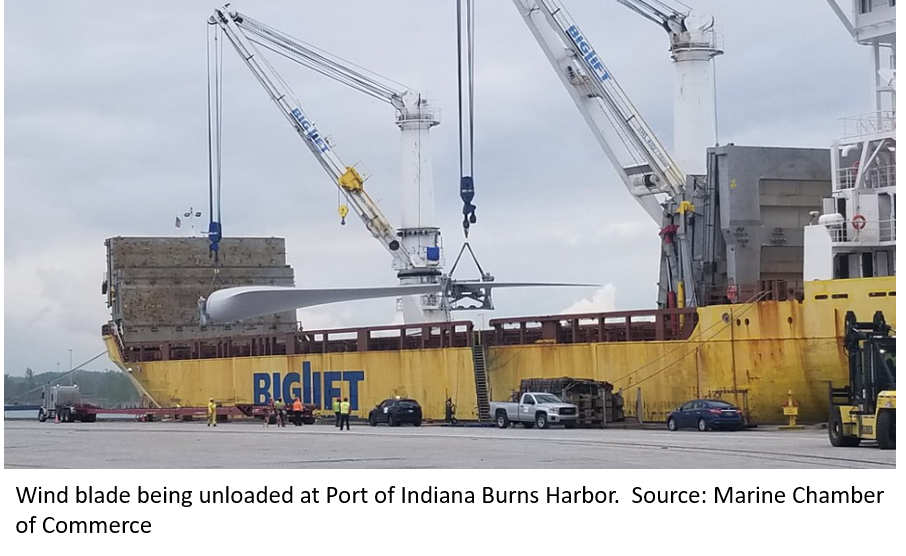Logistics

June 11, 2020
Great Lakes Shipping Declines in May, But New Growth's in the Wind
Written by Sandy Williams
Cargo shipments on the Great Lakes and St. Lawrence Seaway were impacted during the coronavirus pandemic, with ports seeing lower volumes.
Tonnage on the St. Lawrence Seaway was down 10 percent year over year in the period from March 15 through May 31 to 7.7 million metric tons, said the Marine Chamber of Commerce. “Road salt and project cargo shipments such as wind turbine components have remained strong throughout the last two months. However, cargo volumes of steel-related materials, construction materials and petroleum declined as automotive plants and work sites closed and people stayed home during COVID-19-related emergency measures.”
Tonnage at Port of Duluth-Superior fell 28.5 percent year-over-year in May as coal shipments sharply declined. Iron ore shipments decreased 6 percent from a year ago. Grain and general cargo tonnage rose 26 percent and 9.0 percent, respectively, from last year’s pace.
As pandemic-related restrictions are lifted, the Chamber is seeing construction material shipments improve.
Wind Energy Boosts Port Shipments
Wind turbine deliveries were up over the last two months with 15 shipments delivered to the Port of Indiana-Burns Harbor.
“We expect at least 10 more shipments of U.S.-built wind tower sections moving by deck barge from Manitowoc, Wis., down to Burns Harbor. These will be coupled with nacelles, hubs and blades being produced in Europe that are arriving into Burns Harbor via the Seaway,” says Ian Hirt, Port Director for the Port of Indiana-Burns Harbor. “We are also expecting several vessels containing components for gas-powered electrical generation stations that are being constructed in the area. These are emblematic of a shift in energy production in the region away from coal-powered electricity.”

The massive wind turbines, blades and components made their way to five Great Lakes states and seven other American ports in the first two months of 2020, including the Ports of Monroe, Erie, Buffalo, Ogdensburg, Bay City, Menominee, and Chicago. A Michigan wind tower project for General Electric is blowing a lot of the new business into the Great Lakes region.
“The wind project and the tower sections are the lifeblood of our port this season,” said Paul C. LaMarre III, Port Director, Port of Monroe. “Not only is this project impactful from the number of vessel calls, which will be the highest in our history for Seaway cargo, it’s with a partner that we’ve been in the trenches with for five years, has the majority of the Port’s laydown area being utilized, is using multiple modes of transportation, and sustaining our port workforce and partners in challenging times.”







